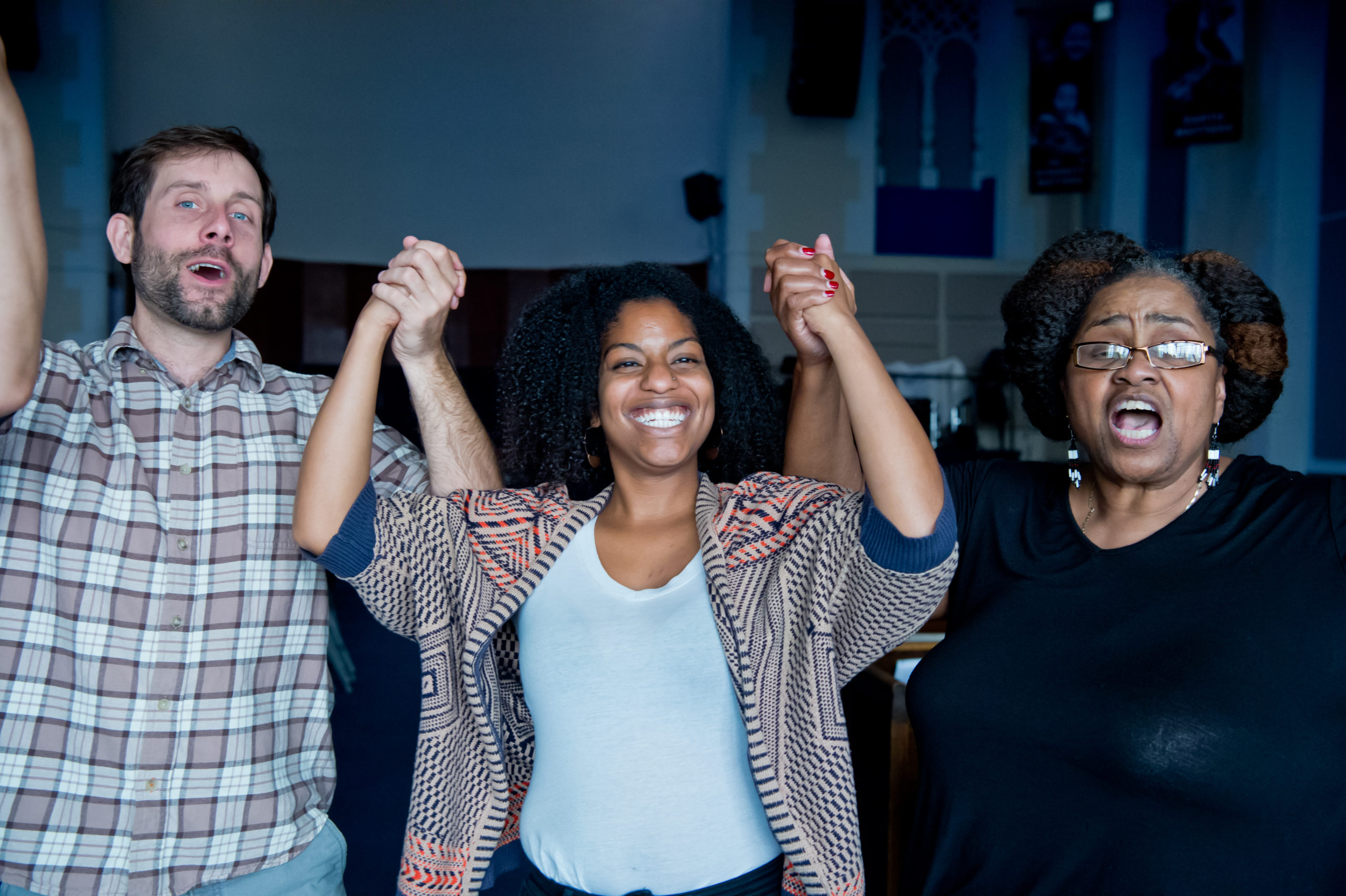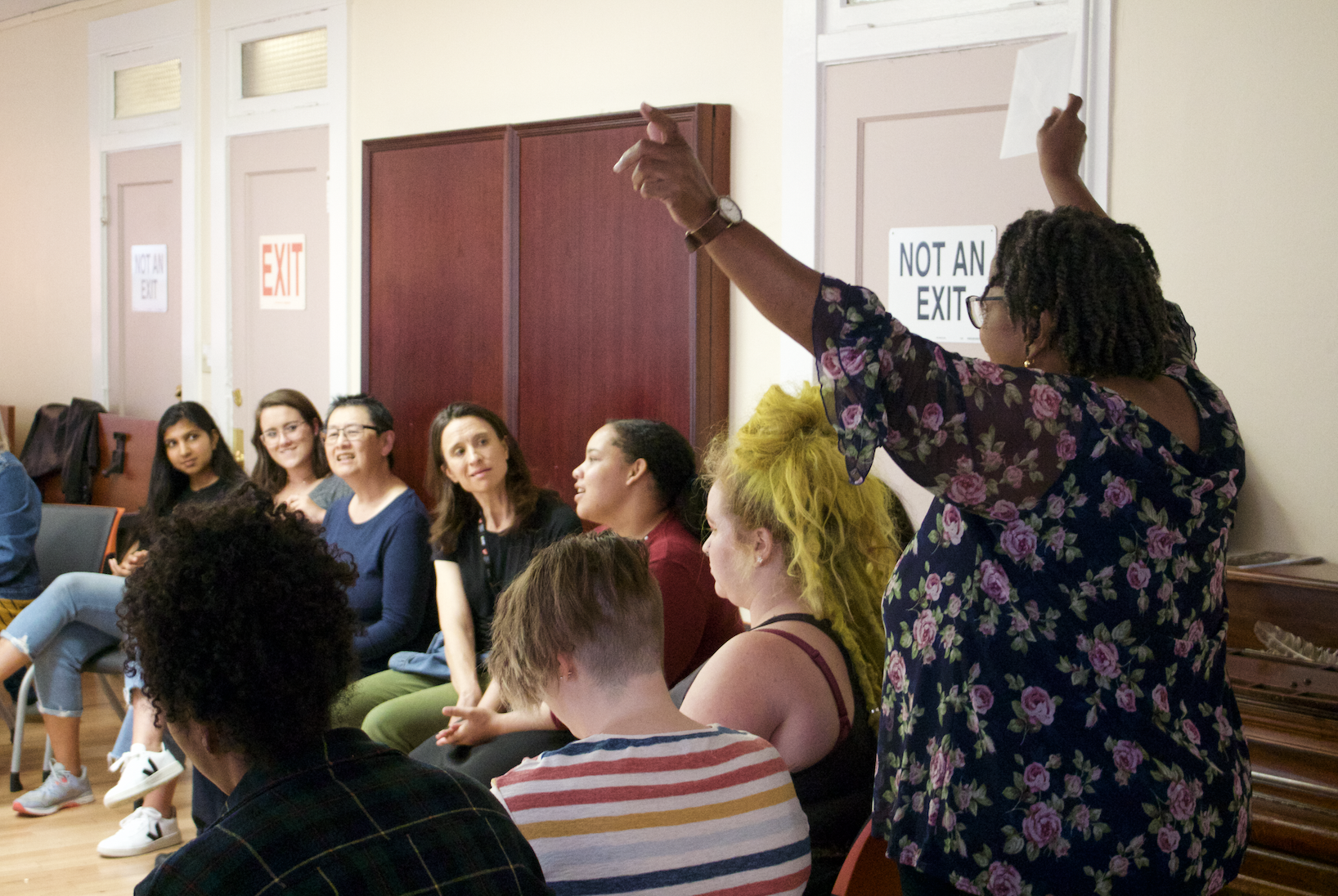Isoke Femi on the spiritual roots of African American music and the power of harmony
Music has always played an essential role in resisting oppression and advancing social justice, including at GLIDE. In honor of Women’s History Month, we sat down with Isoke Femi, Maven of Transformative Learning in GLIDE’s Center for Social Justice, to discuss the foundation of music in her life, spirituality, and justice work. Isoke encourages us to listen to Black music with new ears, as a “medicinal power” that got people through the intense trauma of oppression in all its forms. “It is no accident,” says Isoke, “that such music had potent power to influence and profoundly shape the world.”
What many people fail to understand is that all Black music is spiritual music. It comes out of an ethos that says you have to be able to create a mood instantly. It is about bringing down the spirit. The questions is: What is the spirit you are trying to bring down? Even if it is love or blues, it is still recognized as spiritual. Love is a spiritual thing. Sex is a spiritual thing. Romance is a spiritual thing. These are experiences that you treat spiritually — music is that spiritual treatment. It’s a remedy. It is naming the problem, it is addressing the problem and it is identifying the energetic field.
I call the music that Africans brought to America, and later evolved, “soul force.” The sorrow of the Negro Spiritual is the sorrow of being enslaved. Music not only names that but elevates the experience of enslavement to something else, to something that is more ethereal, more transcendent. Music can take you deeper into an experience and it can lift you out of it. Black music is masterful at doing both those things.
This is the music I grew up with. Music was central to everyday life. We were members of Church of Christ, so there were no musical instruments. Everything was vocal. The only music was to be brought through the voice. All those sounds. All those swaying bodies. Music was an invitation to be fully present in the body and let the body do what it wanted to do.
In my professional life, I use music as a cathartic medicine. Music can say things that words can’t because it bypasses the mental structures that get in the way of certain kinds of communication. We are not all solo performers or commercial musicians, but we realize that music is inextricable to a spiritual experience. The best way to do that is congregational singing, where there is not necessarily any instrument, just voices. Anybody can do that. You don’t have to be able to harmonize, and you don’t have to have a perfect pitch. You can bring your whole soulfulness to it but not need to be super polished.
Every now and then it feels like the universe will drop a few lines into my consciousness that become almost like a mantra or a chant. I use this in facilitating workshops. I use it in rallies. Anytime there is a gathering or a moment in a gathering when something is called for and you feel a little unsure. When there is a need for catharsis, I break out into song.


By Erin Gaede
